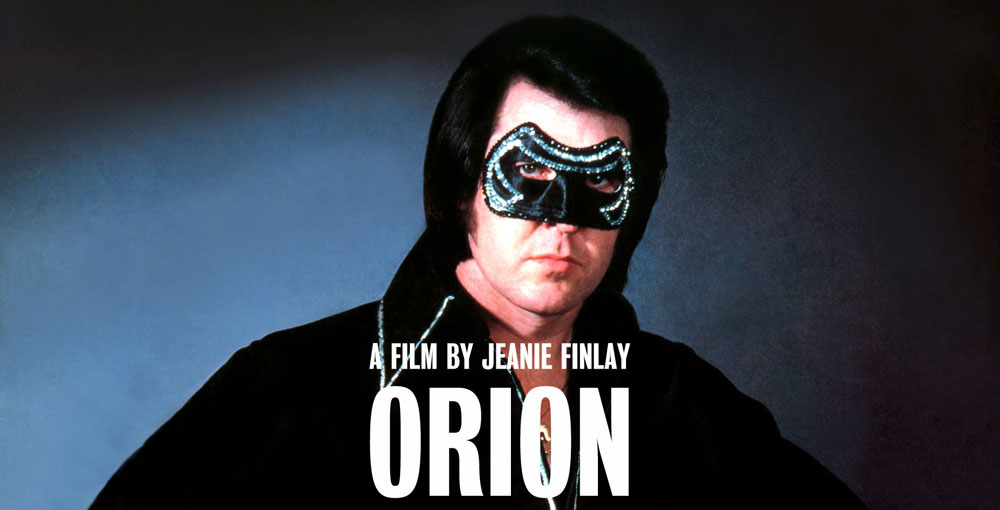When Jeanie Finlay was waiting on the subjects for her last film “The Great Hip Hop Hoax” to finally agree to go before her camera, she was wandering around the record store of her classmate Tom Butchart in Teesside when she decided on the spot to make another film.
“I just remember looking around one day and just thinking this is such a haven for me and it is for everybody else,” says Finlay, of Sound It Out, the charming vinyl shop that would inspire the 2011 documentary of the same name. “This weird thing happens where it’s like time slows down and I’m like oh my goodness, can everybody else see this? Then I just know that that’s going to be a film.”
Finlay had a similar sense while she and her husband were perusing a car boot sale, a flea market-esque event, in Nottingham ten years ago when they came across an album from Orion, the would-be heir to Elvis at Sun Records whose voice carried like the King’s but whose identity was concealed with an ornately decorated mask.
“We bought this record, brought it home and played it and just this incredible voice – it seemed like what is going on here?” recalls Finlay. “And my husband was like, ‘There is so much more here.’”

However, in order to complete filming, Finlay has turned to IndieGoGo to raise funds to deal with some last minute filming and extensive post-production costs such as music rights. Up until now, the filmmaker had piggybacked shooting in the States when she crossed the pond for screenings of “Sound It Out” and “Great Hip Hop Hoax,” often jumping in the car with her Tennessee-born cameraman Stewart Copeland and collecting interviews, which turned out to be a necessity in retrospect.
“If I was ever to raise financing, I would be competing with American filmmakers and I knew it was a story that I felt passionate about and that I just had to do it,” says Finlay. “I’m really glad that I did [because] a very sad reality has been that some of the people that I’ve filmed have now died because they’re older. If I had waited for the funding, I wouldn’t have my film at all.”

Finlay wants contributors to the “Orion” campaign to feel as if they’re really a part of the film. The production team has recreated the singer’s famed masks to print out and wear, with those who tweet a picture with the hashtag #IAMORION automatically securing their place in the online memory bank. As Finlay says, “The mask was the thing that made Jimmy Ellis into the superstar of song ORION, so why not invite the audience to wear the mask and see if it makes them feel different?”
The social media effort speaks to the kind of community building Finlay has prided herself on since successfully crowdfunding “Sound It Out” in 2010, becoming an inadvertent pioneer in the burgeoning field. But as the filmmaker notes, a campaign isn’t only judged by the money raised, but by the amount of interest filmmakers can generate for their subject, something that’s placed additional pressure on this follow-up.

At least you can trust that when there’s something interesting going on, Finlay will be around to capture it.
To back this project and watch the filmmaker’s personal pitch video, click here. And follow the film’s progress on Facebook, Twitter and the film’s official site.





Comments 1